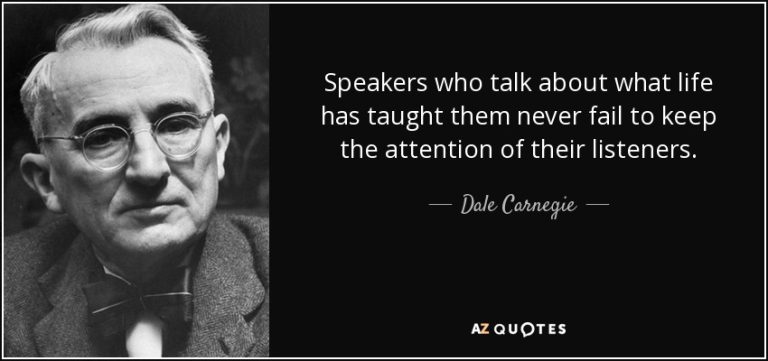What Does Resolved Mean In Debate?
If you’ve ever been curious about what the word “resolved” means in the context of a debate, you’re in the right place! In this article, we’ll dive into the world of debating and explore the significance of the term “resolved.” So, let’s get ready to unravel this linguistic puzzle together!
Debates are exciting opportunities to express opinions, present arguments, and engage in intellectual discourse. But what exactly does it mean when someone says, “The topic for today’s debate is resolved”? Well, buckle up, because we’re about to find out!
In the world of debating, “resolved” refers to the statement or proposition that will be discussed and argued upon. It serves as the foundation for the entire debate, shaping the arguments and driving the conversation. So, now that we’ve clarified what “resolved” means, let’s explore how it influences the dynamic and outcome of a debate!

Understanding the Meaning of “Resolved” in Debate
Debate is an art form that allows individuals to express their opinions, engage in intellectual discourse, and develop critical thinking skills. One key aspect of debate is the concept of resolution. In this article, we will delve into what “resolved” means in the context of debate and explore its significance in shaping the structure and purpose of a debate. So, let’s dive in!
The Definition of Resolved
In a debate, the term “resolved” refers to the proposition or statement that serves as the central topic for discussion. This proposition is typically a declarative sentence that presents a specific position or statement for debate. The purpose of setting a resolution is to establish a clear focus for the debate and provide a framework for participants to express their arguments, counterarguments, and supporting evidence.
When a debate begins, the participants must analyze and interpret the resolution to understand its nuances and implications. It is essential to grasp the intended meaning of the resolution fully. This often requires dissecting the resolution, identifying key terms, and exploring different interpretations that can shape the direction of the debate. Clear understanding and interpretation of the resolution are vital for effective communication and the development of logical arguments.
The Structure of Resolutions
Resolutions in debates typically follow a specific structure to ensure clarity, coherence, and fairness. The structure consists of three main components: the topic, the action, and the context. The topic identifies the subject of the debate, while the action presents the specific stance or position being proposed. The context provides additional information or restrictions that frame the debate’s scope.
For example, a resolution may be structured as follows:
Topic: The Role of Technology in Education
Action: Should be Embraced
Context: In Developing Countries
In this example, the topic is “The Role of Technology in Education,” the action is “Should be Embraced,” and the context is “In Developing Countries.” This structure provides a clear and specific focus for the debate, ensuring that participants tackle the issue from a particular angle and consider the relevant context.
The Significance of Resolved in Debate
The concept of resolution in debate holds significant importance. It sets the stage for the ensuing arguments, shapes the direction of the debate, and helps maintain focus throughout the discussion. By providing a clear and concise proposition, the resolution enables participants to articulate their viewpoints, present evidence, and engage in logical reasoning. Resolved acts as a guiding principle, ensuring that the debate remains on topic and relevant.
Moreover, the resolution creates a level playing field for all participants. It allows them to prepare their arguments in advance, conduct research, and gather evidence to support their position. The resolution serves as a starting point for participants to build their cases, anticipate counterarguments, and engage in a thoughtful, structured, and well-rounded debate.
In conclusion, “resolved” in debate refers to the proposition or statement that serves as the central topic of discussion. Understanding the resolution is crucial for participants to grasp the purpose, structure, and scope of the debate. By setting a clear and concise proposition, the resolution guides the arguments, ensures fairness, and provides a framework for meaningful discourse. So, the next time you engage in a debate, remember to carefully analyze the resolution and let it shape your perspective and argumentation. Happy debating!
Key Takeaways: What Does “Resolved” Mean in Debate?
- Resolved means to find a solution or come to a clear decision in a debate.
- In a debate, the resolution is the statement that is being argued.
- Debaters must provide evidence and arguments to support their side of the resolution.
- The resolution sets the focus and scope of the debate.
- Once the debate is resolved, a conclusion is reached, and the winner is determined.
Frequently Asked Questions
In a debate, the term “resolved” plays a crucial role in framing the topic that will be discussed. To help you understand the meaning behind “resolved” in a debate, we have answered some common questions below.
What does it mean for a topic to be “resolved” in a debate?
When a topic is “resolved” in a debate, it means that a statement or proposition has been presented for discussion, and the debaters are required to argue either for or against it. The topic is typically a statement that can be proven or disproven, allowing participants to take a stance and provide evidence and arguments to support their position.
In other words, the topic being “resolved” sets the stage for a structured debate where opposing sides can present their viewpoints and engage in a thoughtful and persuasive exchange.
How is the resolution determined in a debate?
The resolution in a debate is usually formulated by the organizers or governing body of the debate. They carefully craft a statement that is clear and concise, allowing for a focused discussion. The resolution is designed to provoke differing opinions and enable debaters to present compelling arguments from their respective positions.
It is essential for the resolution to be balanced in order to provide an equal opportunity for both sides to present their case. The resolution serves as the foundation for the debate and guides the arguments and evidence presented by the participants.
Can the resolution in a debate be changed during the course of the discussion?
No, the resolution remains consistent throughout the debate. It is important for the resolution to be fixed to allow for a fair and structured debate. If the resolution were to change during the discussion, it could lead to confusion and undermine the overall purpose of the debate.
However, debaters have the flexibility to interpret and approach the resolution in different ways, allowing for diverse perspectives and arguments. This ensures a dynamic and engaging debate while maintaining the stability of the resolution.
Why is the resolution important in a debate?
The resolution serves as the focal point of the debate and helps in establishing a clear framework for discussing the topic. It sets the stage for a structured and organized exchange where participants can present their arguments and evidence in a coherent manner.
Additionally, the resolution allows the debate to be focused and prevents the discussion from deviating into unrelated or tangential topics. It provides a clear purpose and direction, enabling both the debaters and the audience to follow the arguments and assess the merits of the case being presented.
What is the role of the resolution in determining the winner of a debate?
The resolution acts as a guide in determining the winner of a debate. The judges or evaluators assess the strength of the arguments, evidence, and overall persuasive abilities of the debaters in relation to the resolution. The side that effectively supports their position and successfully refutes the opposing arguments is generally considered the winner of the debate.
However, it is important to note that the resolution itself does not determine the winner. It is the debaters’ ability to construct and deliver compelling arguments within the framework of the resolution that ultimately determines the outcome.
How to define the resolution in a debate
Summary
When we say a debate topic is resolved, it means a decision has been made. The winning side has convinced more people with their arguments and evidence. Debates are a way to express opinions, develop critical thinking skills, and learn from different perspectives.
In a debate, the goal is not just to win, but also to understand different viewpoints and build strong arguments. Resolving a debate doesn’t mean one side is completely right and the other is completely wrong. It simply means that, based on the information presented and the persuasiveness of the arguments, a decision has been reached. So, when you hear that a debate is resolved, remember that it’s about finding a conclusion and learning from the process.



